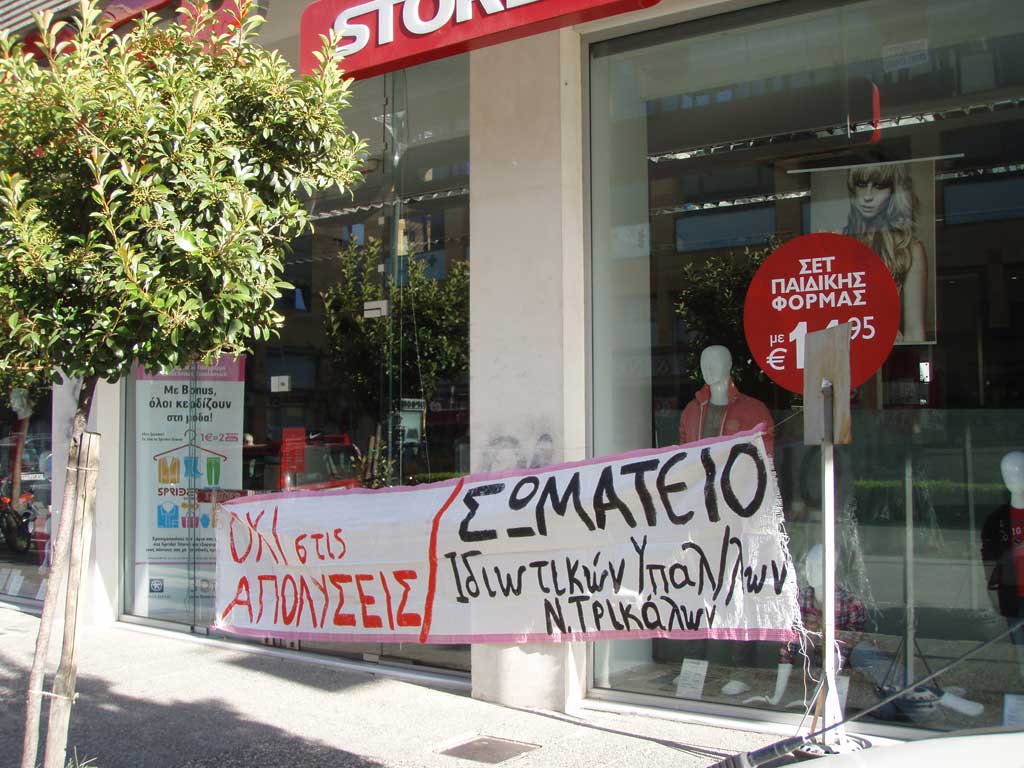The European Commission has proposed to provide Greece with 7.2 million euros from the European Globalization Adjustment Fund (EGF) to help 761 former workers of the clothing retail chain Sprider Stores in Greece to find new jobs, and to extend its support to 505 young people not in employment, education or training (NEETs). Most of the redundancies happened in the regions of Attica and Central Macedonia. The proposal now goes to the European Parliament and the EU’s Council of Ministers for approval.
EU Employment, Social Affairs and Inclusion Commissioner László Andor said the “decision will help to prepare over 1,200 people for new jobs and first job opportunities”.
“Greek workers are going through a difficult period and we must use all the tools we have at our disposal to provide assistance,” said Mr. Andor. “I am happy the Commission has responded positively to Greece’s request for EGF support to the redundant workers, along with young people not in employment, education or training.”
Greece applied for support from the EGF following the dismissal of 761 workers in Sprider Stores S.A. These job losses were the result of the global financial and economic crisis which has deeply affected the Greek economy.
The measures co-financed by the EGF would help the workers and the NEETs find new jobs by providing them with active career guidance, vocational training, specific advice towards entrepreneurship, contributions to business start-up and a variety of allowances.
The total estimated cost of the package is €12 million, of which the EGF would provide €7.2 million.
About Sprider Stores
Sprider Stores S.A. was a clothing retail chain present in the Greek market, the Balkans and various South-eastern European countries. Due to the drop of purchasing power of Greek households following the decline of the Greek economy since the beginning of the crisis, demand for products other than basic staples has plummeted and, as a result, the turnover of the company started declining.
This trend, combined with the drastic reduction of loans to enterprises and individuals due to the lack of cash in Greek banks, made it impossible for Sprider Stores to find a solution and led the enterprise to bankruptcy.
Since Sprider Stores was present in all Greek regions, the redundancies are spread out over the whole of Greece. However most of the redundancies (64%) are concentrated in Attica and Central Macedonia. In the last quarter of 2013, the unemployment rate in Attica was 28.2%. In Central Macedonia, the situation of young job-seekers is particularly dramatic, since the unemployment rate was 30.3%, while the youth unemployment rate was 60.4%. Furthermore, there are few job vacancies in both territories compared to the high number of job seekers. As a consequence, more than 70% of the unemployed have been out of the labour market for more than 12 months.
More open trade with the rest of the world leads to overall benefits for growth and employment, but it can also cost jobs, particularly in vulnerable sectors and among lower-skilled workers. This is why Commission President Barroso first proposed setting up a fund to help those adjusting to the consequences of globalisation. Since starting operations in 2007, the EGF has received 130 applications. Some €536 million has been requested to help more than 116,000 workers. In 2013 alone, it provided more than €53.5 million in support.
The Fund continues during the 2014-2020 period as an expression of EU solidarity, with further improvements to its functioning. Its scope includes workers made redundant because of the economic crisis, as well as fixed-term workers, the self-employed, and, by way of derogation until the end of 2017, young people not in employment, education or training (NEETs) residing in regions eligible under the Youth Employment Initiative (YEI) up to a number equal to the redundant workers supported.
Ask me anything
Explore related questions







